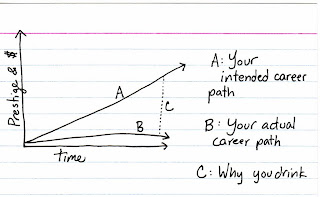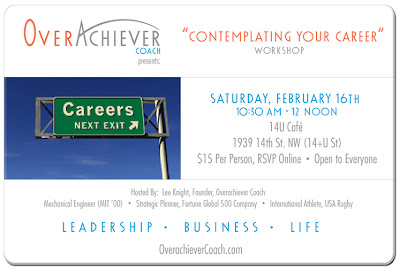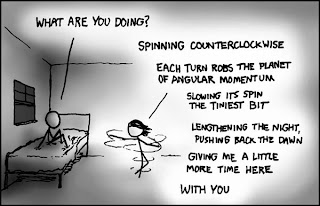This post (#3 out of 5 total NLP posts) is about effectively establishing a rapport with someone. I think most of us employ the NLP techniques of "pacing" and "leading" to some degree, but it's good to be more aware of how we can bring it into play to enhance our interpersonal relationships:
- Pacing - Use mirroring techniques to match the person in terms of tone, word choice, volume, breathing tempo, and body language to form a rapid bond or to strengthen an existing relationship.
- Leading - You can then test your rapport with someone by "leading" with an action and seeing if they follow your lead - i.e. if you straighten up in your seat, cross your legs, or put your hands on the table during a conversation that person will soon follow if they're comfortable with you.
An example: Someone comes into your dry cleaning store fuming, "You missed this spot on the back of my favorite dress and I wore it out without noticing, assuming you had cleaned it thoroughly. Why didn't you get the spot out and why didn't you tell me when I picked it up?" Mirroring her tone, loudly and seemingly frustrated, you respond, "It makes me angry that we would let that happen since we pride ourselves on our customer service. It's totally unacceptable that we didn't mention it when you picked it up, and we can't continue doing business with good clients like you in that way. Now, what can I do for you to make this right?"
Once you have a rapport with them, then you can transition into "leading" by softening your voice and gesturing less to bring the customer with you to a calmer place where you can discuss more effectively. It seems like this technique would be great for negotiations and resolving conflicts quickly.
I think it would be difficult to match someone at first if they're yelling and angry because that's not the way I would naturally think to diffuse the situation. My inclination is to play it soft from the beginning and approach it with tact and appeasement, but maybe next time I'll try pacing and mirror their frustration at first. However, in personal discussions I'm not sure it would be as effective because emotions have a way of escalating and "discussions" often become bigger than intended.
- Have you ever tried pacing and leading either in a professional or personal situation?
- Was it intentional or unintentional, and how did it work?










